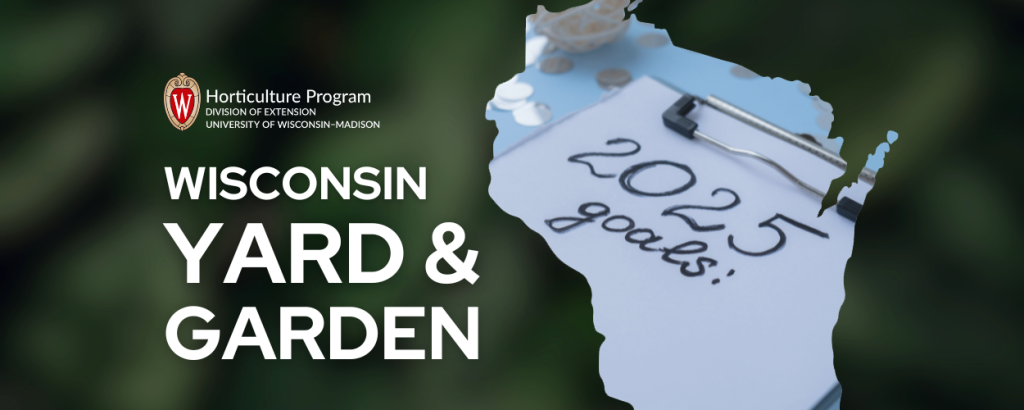
As 2024 ends and we look ahead to 2025, consider some gardening topics in your resolution list. Soils, plant selection, and sound pest management are crucial for about all types of gardening and make good fundamental areas to focus on for success in 2025.
Soil is the foundation for all plant growth yet is often overlooked and mismanaged. Resolve to improve your soils in 2025. Good soil structure, which includes adequate pore space, is essential. This is a prime reason for adding organic materials, such as compost, to improve soils. This is also why soils are tilled prior to planting and why turf areas are core aerified to reduce compaction. Compacted soil has reduced pore space, which causes plants to struggle.
The phrase match the plant to site cannot be overemphasized. Plants in the wrong place are likely to perform poorly and decline due to stress. Multiple factors come into play when deciding if a plant is a good fit for a particular site. Resolve to start with winter hardiness. Wisconsin hardiness zones range from USDA Zone 6a (mildest) on the Lake Michigan shoreline to a few scattered areas of Zone 3a (harshest) in parts of Northwestern Wisconsin; with most of the state in either Zone 5 or Zone 4. Ideally choose plants grown in local nurseries.
Consider whether the site is full sun, full shade, or a combination and research plant needs to see if they fit. Site specific factors such as soil drainage, soil fertility, and exposure to wind also come into play. Once all the cultural considerations are met, make sure the plant is a good fit aesthetically to both the overall landscape plan and the specific spot it will be planted.
When growing plants, insect pests, diseases, and other problems are bound to occur and need to be managed at some point. Knowing how to properly address them is important. Our Ask a Gardening Question website is available 24/7 to assist you with plant care; resolve to use it in 2025! Researching problems your plants are prone to is also worthwhile, as many can be prevented ahead of time through resistant plants or cultural practices.
When plants experience problems, always identify the cause before trying to manage it. Applying an insecticide to manage what is a disease is a huge mistake. Resolve not to apply pesticides without first identifying the problem, and then considering all management options. Many problems have multiple management techniques, including both chemical and non-chemical options. When using pesticides, always read and understand all label directions before purchasing, mixing, or applying any chemical in the yard or garden.

About the Author
Bruce Spangenberg is a Horticulture Outreach Specialist with UW-Madison Division of Extension. Get answers to your lawn, landscape and garden questions anytime at “Ask Your Gardening Question.”

